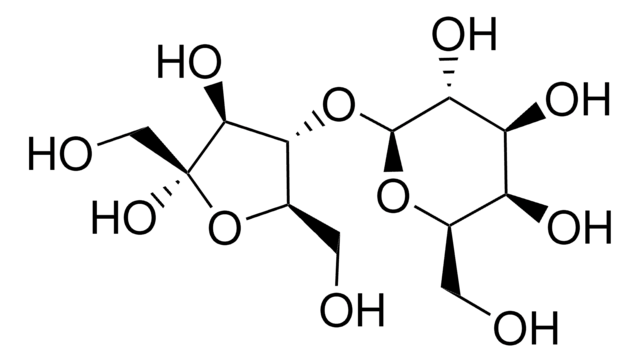M0200000
Mannitol
European Pharmacopoeia (EP) Reference Standard
Synonym(s):
D-Mannitol, Mannite
About This Item
Recommended Products
grade
pharmaceutical primary standard
API family
mannitol
manufacturer/tradename
EDQM
mp
167-170 °C (lit.)
application(s)
pharmaceutical (small molecule)
format
neat
SMILES string
OC[C@@H](O)[C@@H](O)[C@H](O)[C@H](O)CO
InChI
1S/C6H14O6/c7-1-3(9)5(11)6(12)4(10)2-8/h3-12H,1-2H2/t3-,4-,5-,6-/m1/s1
InChI key
FBPFZTCFMRRESA-KVTDHHQDSA-N
Looking for similar products? Visit Product Comparison Guide
General description
For further information and support please go to the website of the issuing Pharmacopoeia.
Application
Established for the preparation of the below-given solutions as per European Pharmacopoeia:
- Reference solution (b) in the testing of related substances using liquid chromatography (General text 2.2.29) in isomalt, according to the monograph 1531
- Reference solutions (a) in the identification of mannitol using thin-layer chromatography (General text 2.2.27) and infra-red spectroscopy and testing of related substances and assay using liquid chromatography (General text 2.2.29), according to the monograph 0559
- Reference solution (b) in the identification of sorbitol using thin-layer chromatography (General text 2.2.27), according to the monograph 0435
- Reference solution (b) in the testing of related substances using gas chromatography (General text 2.2.28), according to the monograph 1381
Biochem/physiol Actions
Packaging
Other Notes
related product
Storage Class Code
11 - Combustible Solids
WGK
WGK 1
Choose from one of the most recent versions:
Certificates of Analysis (COA)
Sorry, we don't have COAs for this product available online at this time.
If you need assistance, please contact Customer Support.
Already Own This Product?
Find documentation for the products that you have recently purchased in the Document Library.
Customers Also Viewed
Our team of scientists has experience in all areas of research including Life Science, Material Science, Chemical Synthesis, Chromatography, Analytical and many others.
Contact Technical Service




